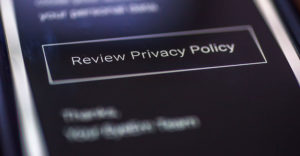
Electric-car battery maker A123 Systems earlier this week filed a lawsuit against Apple in a Massachusetts Superior Court in Middlesex County. A123 also sought a temporary restraining order and preliminary injunction to stop its former employee, Mujeeb Ijaz, from violating his non-disclosure and non-compete agreement.
Ijaz had moved to Apple to apply his skills as an auto-battery engineer. A123 alleges that Ijaz helped Apple recruit at least one engineer who now works at Apple and is also named in the suit. They all worked in A123’s System Venture Technologies division, which conducts research and development related to A123’s lithium-ion battery.
The reasons for the poaching are straightforward, A123 said in its suit:
“It appears that Apple, with the assistance of defendant Ijaz, is systematically hiring away A123’s high tech PhD and engineering employees, thereby effectively shutting down various projects/programs at A123,” according to the filing.
“They are doing so in an effort to support Apple’s apparent plans to establish a battery division that is similar if not identical to A123’s, in competition with A123, and despite actual knowledge that all of the individual defendants” have signed non-compete agreements with A123.
All Eyes on Apple’s Plans
News of the suit took off as it adds credence to the notion that Apple has its eyes on next-generation automobile technology. It also revived the periodic debate about whether employees with valuable skills should be free to sell their talents to the highest bidder.
The law is generally in favor of allowing people to move from company to company, especially in states like California where non-compete agreements are all but unenforceable.
However there are some nuances to this case that could give A123 some legal firepower.
“I think there is potential to the case but it will be very fact specific and revolve around the matter of trade secrets and what the terms were of the employment agreement,” Bryan Sullivan, partner at Early Sullivan, told the E-Commerce Times.
For example, it is conceivable that if someone is hired for a five-year term, a company could stop that employee from leaving before the term is up.
A more likely path for A123 is that its former employees are spilling trade secrets to Apple, Sullivan said.
Trade secrets can be defined widely to include anything such as a client list to a certain process for building a specific technology, he explained. The company must be able to show that it is protected and valued — and not, say, lying around a desk where anybody could read it.
It may be that the suit against Apple and the ex-employee defendants goes nowhere, but A123 might have other goals in mind, Sullivan said. “Maybe they want to keep their other employees from leaving so they filed this suit to show that they won’t make it easy.”
No Slam Dunk
The suit is facing an uphill climb, precisely because it appears to be primarily focused around the non-compete agreements, said Peter Toren, partner at Weisbrod Matteis & Copley — and those cases are heavily skewed to favor the employee.
“It is difficult to curtail someone’s right to move from one company to another, unless the former company can show that these employees have to disclose trade secrets to do their new jobs,” he told the E-Commerce Times.
Even under that scenario there is usually a time limit, he added.
Toren believes that any remedy — if one is indeed eventually applied for A123 — will be limited.
“It won’t be any broader than it has to be, to protect the intellectual property of the former employer,” he said.




















































This is precisely why we need patent reform. I would suggest a radical departure from reform supporting big business and big capital. The reason by M$ and Apple and big Pharma are ruining innovation by creating patent thickets and making their true creators (the "paid" engineers and scientist) who actually do the work and should get the credit. The effects are far reaching and I believe have severely stilted our technological development since Apollo. It’s sad when all the good information and development is being done by companies who hire our best and brightest (groomed by tax dollars) and then proprietize and hide information so that no one can build upon that. How about reforms which put some degree of proprietorship into who created it (by law) regardless of what company they work for.